Beyond the Pink: The untold realities of breast cancer with Tina Chagoury
Lindsay Judge

And where to get tested this month
As someone who lost my mum to breast cancer just two years ago, I know better than most how important it is to get regular checks and catch it early. And yet, until now, I have been too scared to check myself. In truth, I am terrified of what I might find. Despite all the awareness campaigns, the pink ribbons, the smiling faces in glossy ads, the fear of breast cancer is still very real. But the reality is, early detection truly saves lives. According to the American Cancer Society, when breast cancer is found early (stage 0 or 1), the 5-year survival rate is 99% and that’s why it’s so important to listen to our bodies.
It's true that despite the extensive research into the disease, millions of women are still being diagnosed with breast cancer each year. According to the World Health Organisation, it remains the most common cancer globally, affecting more than 2.3 million women each year and causing around 670,000 deaths. In the UAE, it accounts for roughly 45 per cent of cancer cases among women. But there is hope. Early detection remains the single most powerful tool for survival, and this is why, despite our fears, checking our bodies and being educated on the risks and signs of breast cancer are undoubtedly the key to survival and prevention.
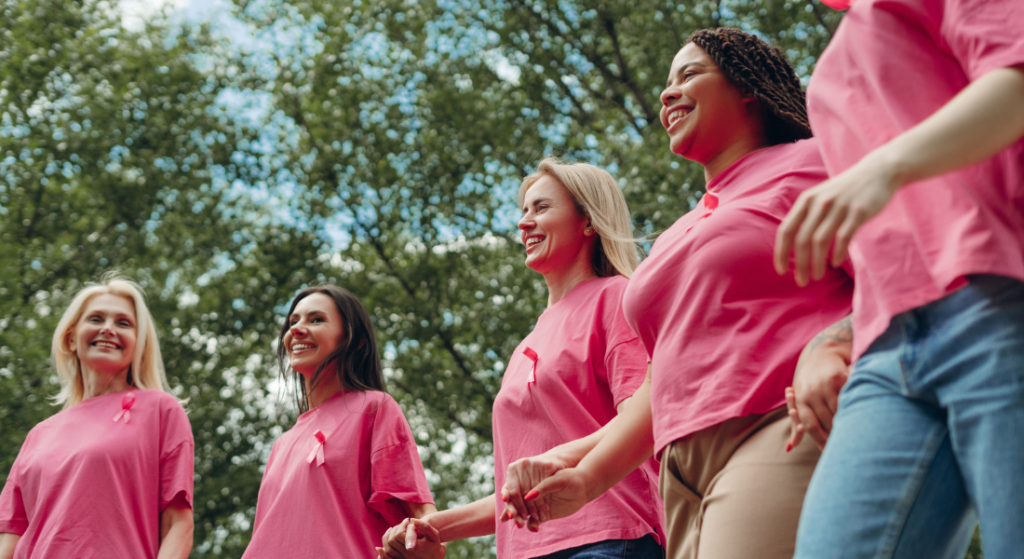
Each October, or “Pinktober” as it has become known worldwide, the world comes together to raise awareness of this devastating disease. Pink lights decorate skyscrapers, celebrities wear ribbons, and campaigns encourage women to check themselves or book a mammogram. Charity walks, fundraisers and gala dinners raise millions towards research, treatments, and support initiatives.
Of course, this is an incredible global movement, one that saves lives every year and gives women the resources and confidence to seek help early. But amid the positivity, there is an often-overlooked side to breast cancer: the emotional and physical toll that continues long after remission. The trauma, the uncertainty, the ongoing treatments, and the constant fear that it might one day return.
It’s time to talk about what no one is talking about when it comes to breast cancer awareness.
The Hidden Realities
Dubai-based Lebanese clinical dietitian and women’s health expert Tina Chagoury knows this fear all too well. Diagnosed with breast cancer in 2019, she now lives in remission. She is one of the “lucky” ones, though her life remains governed by follow-ups, medications, and injections to prevent recurrence.
“I’m on monthly injections to shut down my ovaries, I’m on daily pills to block oestrogen production, and I am on bi-annual injections for the bones to prevent osteoporosis”, she explains. “Because I’m young and my menopause happened very quickly, I’m at higher risk of osteoporosis. I see the doctor every three months for blood tests, and every month, I am at the hospital doing my injections and seeing the nurses. It’s a constant journey.”
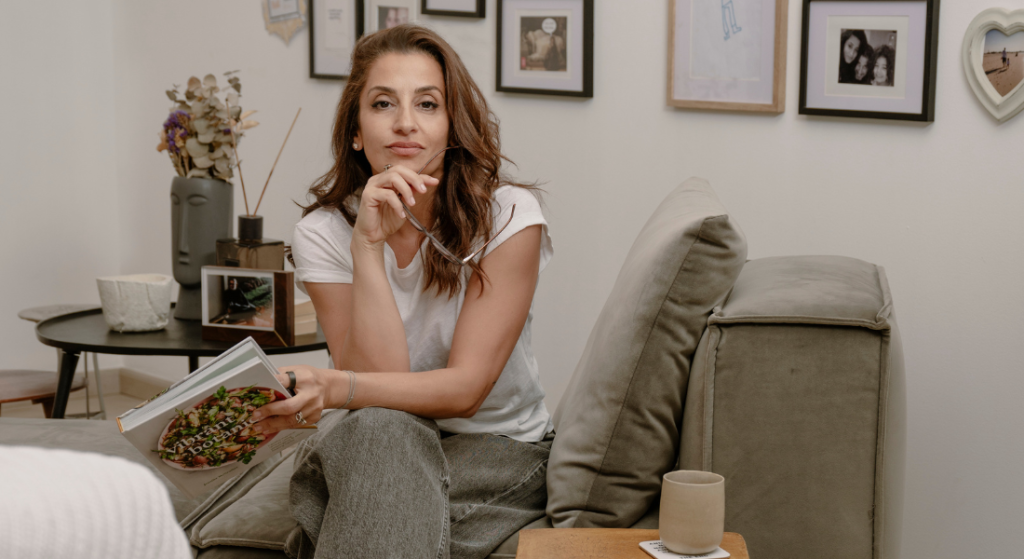
For Tina, and for thousands like her, recovery is not an ending; breast cancer is an ongoing process. Breast cancer treatment often triggers early menopause, whether temporary or permanent, due to chemotherapy, radiation, or hormone-blocking therapy. The result can be sudden and severe symptoms of hot flashes, insomnia, mood swings, joint pain, and sexual health issues.
“Emotionally, with time, it settles in,” she explains. “You don’t stop thinking about it or forget it, you’re always constantly reminding yourself of what you’ve been through and reminding yourself of your checkups, your diagnostic tests – everything has to be done perfectly, and you have to do your part.”
But Tina also speaks from a place of profound resilience and perspective. “I wouldn’t say I live in anxiety. I see many breast cancer survivors who visit me at the clinic, and some who are very anxious, even obsessive about the things they are doing, about what they eat, using the right products – I am definitely not there. I live day to day.”
Her journey, however, took an even more heartbreaking turn when, two years after her treatment, she lost her husband to a heart attack, followed by the passing of her mother. “When this happened, breast cancer became very silly. It became something that can be managed or treated; compared to death, it put things in perspective. After that, I also lost my mum, and so the things that happened to me personally after my breast cancer, maybe helped me manage my anxiety towards cancer better.”
Today, she says, “I am content, I am grateful. I do my treatment and my checks, and I try to carry on with life.”
Fear and Awareness
Fear is still one of the biggest barriers preventing women from getting checked. “I have heard so much about women who are scared to check themselves. People around me, people at the clinic. I completely understand,” Tina says. But she also emphasises how much progress has been made. “Every day in breast cancer research, there are new drugs, new protocols, more advancements, so being diagnosed 20 years ago is very different to being diagnosed in 2025 and will be very different from being diagnosed ten years from now. We see people living a perfectly ‘normal’ life with stage 4 breast cancer, so it has changed a lot. The most important fact is that when caught early, there is a 96 per cent chance of complete remission.”
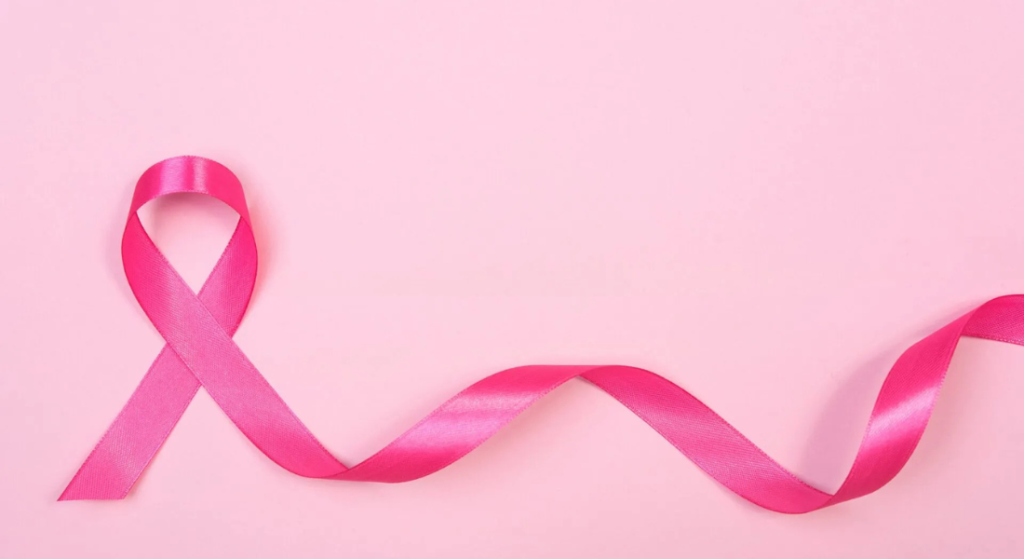
Her message to women is clear: “If you are not getting checked, you are always going to be worried. Chances are, when you get checked, you either catch things very early on, or there’s nothing, and you have peace of mind.”
Beyond the Pink Ribbon
Tina’s story also sheds light on an uncomfortable truth: the commercialisation of breast cancer awareness. “I have always felt that October, in specific, is great, of course – I know many women who get inspired and go and do their tests because of it, so we can’t deny that. But in the same way, it is very triggering to breast cancer survivors, patients and their families. It’s a constant reminder. And not only is it a constant reminder, but it also demeans the struggles that we go through every day.”
She describes how, over time, her relationship with awareness campaigns has evolved. “Initially, the first year after I finished my treatment, I would be invited to events to speak about it, and I would love to go. It would make me feel empowered. I would be happy to share my message. Gradually, I started feeling like people were overdoing it a bit with breast cancer survivors being in public, answering questions about their private lives, just for them to inspire others, while in fact, they are being triggered.”
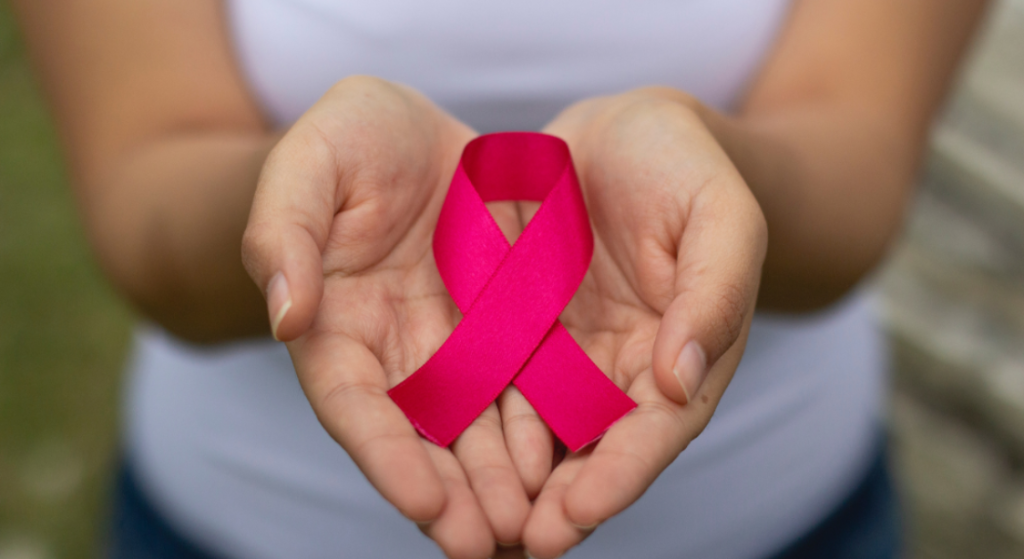
For many women, she says, these conversations can be deeply personal and sometimes invasive. “The other thing I find upsetting for these women is that they are asked the question of how it feels not to be able to have kids? We don’t ask these questions in public just to inspire other women. In fact, I don’t find this inspiring at all.”
She recalls one particularly moving moment at a recent event where she saw a concerned look on one of the cancer survivors’ faces. “She was being asked difficult questions around the illness, and I looked at this lady and I saw in her eyes the confusion of ‘what am I doing here, shall I just leave?’ and then I thought, ‘this is a topic that needs to be addressed.’”
Her point is powerful. While awareness is vital, so is honesty. “Every year, in October, just like we want to remind people to get checked, we also want to honour women who are going through this, or people who have lost loved ones to this, and we need to mention the struggles and be very honest. The problem is that what people don’t realise is that we are simplifying it a lot. But it’s not that simple.”
The Message We Need to Hear
What Tina wants most is education, not fear. “My main aim is to promote education. I really want women to know the facts and the statistics. Why it happens, what to do when it happens. But also remember that early detection is detection, not prevention - let’s work harder on prevention, from what we eat to what we put on our skin to how we lead our busy lives and what supplements we take. There are so many myths and misconceptions around breast cancer, so my main aim is education. I want people to know the facts.”
Her advice is deeply empowering: “My message is not for women to get checked (of course, this is important), but my message is: be in control of your health at all levels. You are the only person responsible. No one knows your body more than you. You have to respect it and do all the necessary steps to honour it, and you have to have the tools to do that.”
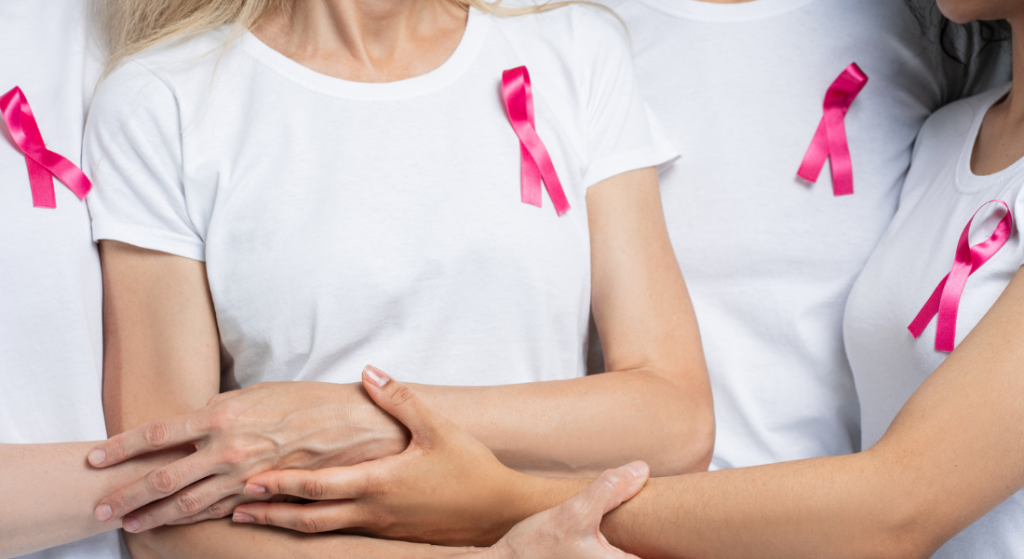
Breast cancer is not glamorous. It is real. It is hard. And it is happening every day. Yes, awareness month matters, every pink ribbon, every donation, every story shared helps save lives. But it’s also a time to listen, to learn, and to honour the real women behind the statistics. The ones who continue their fight quietly, courageously, and with unshakeable grace.
Education, empathy, early detection and prevention are the true pillars of awareness, and for that reason, checking your body, doing your mammograms and being aware of the risks are incredibly important. I, for one, will be booking my check-up appointment this month!
Don’t be afraid - Book your Mammogram now.
5 places to get checked across the UAE this month
Follow Us
The Latest
-

Wellness
The science behind peptide injections
All the risks behind the so-called miracle treatments
-

Travel
Detox hotels to book for your next getaway
Check in, to check out at these beautiful resorts
-

Travel
Discovering Singapore’s green allure
Exotic, diverse, lush. The garden city of Singapore nurtures culture, fine dining, and an environmentally oriented plan for the future
-

Travel
Inside The Royal Diriyah Opera House in Riyadh
Saudi Arabia’s first dedicated opera house opening soon
Subscribe to our newsletter and receive a selection of cool articles every weeks
You can unsubscribe at any time. To find out more, please visit our privacy policy.


